| Pages:
1
2 |
Science is my middle name
Harmless

Posts: 10
Registered: 6-1-2016
Member Is Offline
Mood: No Mood
|
|
Solid state rocket propellant
I would like to build a test rocket to take a picture/video of the curvature of the earth, currently my plan is to build a three stage rocket were the
first stage is composed of 3 solid propellant boosters to send the rocket 1/3 of the way up. The second stage will be a LOX and LH2 liquid fueled
rocket engine to get it almost 2/3 of the way up with the third stage simply separating from the second stage and allowing enough time to deploy a
parachute and delicate equipment such as a thermometer and visual streaming feed to save the video if the parachute fails. Does anyone have ideas for
a strong enough propellant for the first stage? Ammonium perchlorate and aluminum powder + binder?
|
|
|
Aurium
Harmless

Posts: 46
Registered: 4-10-2015
Member Is Offline
Mood: Energetic
|
|
Consider a high altitude balloon. Not as cool but much more feasible for amateur. 
|
|
|
hissingnoise
International Hazard
    
Posts: 3940
Registered: 26-12-2002
Member Is Offline
Mood: Pulverulescent!
|
|
Or a camera with wide-angle lens on a pole? 
|
|
|
Science is my middle name
Harmless

Posts: 10
Registered: 6-1-2016
Member Is Offline
Mood: No Mood
|
|
I really don't think a wide angle lens on a pole will work. I have already built the second stage of the rocket and I'm not going to disassemble it.
Does anyone have ideas for the fuel for stage 1.
|
|
|
Sciencemasta
Harmless

Posts: 2
Registered: 22-3-2016
Member Is Offline
Mood: No Mood
|
|
I think you should use a hot air balloon because it will be simple to get /make
|
|
|
hissingnoise
International Hazard
    
Posts: 3940
Registered: 26-12-2002
Member Is Offline
Mood: Pulverulescent!
|
|
| Quote: | | I really don't think a wide angle lens on a pole will work. |
Sorry Sn, I can resist anything but the slightest temptation to take the piss . . .
Welcome to scimad!
|
|
|
Science is my middle name
Harmless

Posts: 10
Registered: 6-1-2016
Member Is Offline
Mood: No Mood
|
|
Does anyone have any ideas for a solid state rocket propellant.
What about
16% Aluminum powder
69.6% Ammonium perchlorate
0.4% Iron (III) Oxide
12.4% PBAN binder
1.6% Epoxy curing agent
Would this work?
|
|
|
Aurium
Harmless

Posts: 46
Registered: 4-10-2015
Member Is Offline
Mood: Energetic
|
|
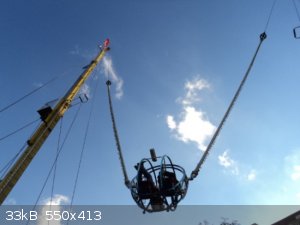
Or build a giant slingshot and fling a camera ball into the blue.
But wait you already have the LOX/LH2 stage built?? Now that's something it'd like to see.
|
|
|
Science is my middle name
Harmless

Posts: 10
Registered: 6-1-2016
Member Is Offline
Mood: No Mood
|
|
I don't have a camera yet
It should be here in about a week
|
|
|
Herr Haber
International Hazard
    
Posts: 1236
Registered: 29-1-2016
Member Is Offline
Mood: No Mood
|
|
Your idea is correct.
Now, I'm pretty sure that people who might be able to help you would do so more willingly if you demonstrated something that would make them take you
seriously.
Any previous achievements perhaps?
Because saying you already have a liquid oxygen and hydrogen second stage is no small feat. You must have some data to share I hope? Burn time,
thrust, projected weight of the whole rocket and it's different stages, etc
.
There are some "rocket scientists" (not me) around here who might help you a long way if you show you are serious and already have some "know how".
|
|
|
Science is my middle name
Harmless

Posts: 10
Registered: 6-1-2016
Member Is Offline
Mood: No Mood
|
|
I get what your saying but really this is my first major thing. My friends were starting this and they asked me if I had any ideas so I decided to
help them. They work mostly with mechanical and electrical things while I am the chemist of the group. Currently I'm at school and the half built
rocket is at there house.
|
|
|
Science is my middle name
Harmless

Posts: 10
Registered: 6-1-2016
Member Is Offline
Mood: No Mood
|
|
One of my friends sent me an extremely rough sketch he quickly doodled out. We are all in school right now though.
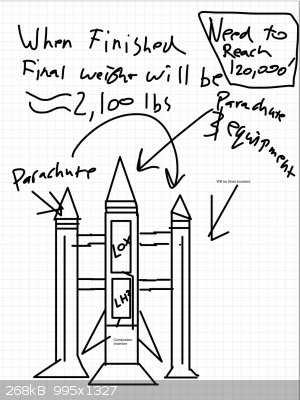
|
|
|
Aurium
Harmless

Posts: 46
Registered: 4-10-2015
Member Is Offline
Mood: Energetic
|
|

Go for it! I'm sure you'll learn something along the way.
|
|
|
hyfalcon
International Hazard
    
Posts: 1003
Registered: 29-3-2012
Member Is Offline
Mood: No Mood
|
|
Don't know where you plan to launch this thing at, but something that weighs more than a ton has some liability attached to it IF it gets off the
ground and IF it doesn't blow up on the launch pad it will have to come down somewhere. Have you thought of any of that? Landing zone?
|
|
|
PHILOU Zrealone
International Hazard
    
Posts: 2893
Registered: 20-5-2002
Location: Brussel
Member Is Offline
Mood: Bis-diazo-dinitro-hydroquinonic
|
|
If your rocket goes on a strange unpredicted pathway or cato for a reason or another ... destroying personal/civilian/natural structure ... scaring,
injuring or killing people...you might be in serious troubles...
It could also be considered a treat of terrorism or nuclear missile and be destroyed by military forces...without flying rights...maybe crossing
civilian aerial transport...
So such big rockets are a lot of troubles...good luck!
PH Z (PHILOU Zrealone)
"Physic is all what never works; Chemistry is all what stinks and explodes!"-"Life that deadly disease, sexually transmitted."(W.Allen)
|
|
|
Science is my middle name
Harmless

Posts: 10
Registered: 6-1-2016
Member Is Offline
Mood: No Mood
|
|
My friends are taking care of that. We are going to get a permit from the FAA and get it all the way down to the mohaji desert in Southern California
where there are several amateur rocketry groups. The main thing is getting the permit though.
|
|
|
Oscilllator
National Hazard
   
Posts: 659
Registered: 8-10-2012
Location: The aqueous layer
Member Is Offline
Mood: No Mood
|
|
Quote: Originally posted by Science is my middle name  | | My friends are taking care of that. We are going to get a permit from the FAA and get it all the way down to the mohaji desert in Southern California
where there are several amateur rocketry groups. The main thing is getting the permit though. |
I really think you should build a few small rockets before you go for a 3-stage one. Have you tried building some small sugar rockets to start with?
They can be great fun and teach the basics of rocket building.
|
|
|
j_sum1
Administrator
       
Posts: 6230
Registered: 4-10-2014
Location: Unmoved
Member Is Offline
Mood: Organised
|
|
With that in mind, I recommend yt channel "The king of random". He has a nice series on rockets and some really good ideas.
|
|
|
NedsHead
Hazard to Others
  
Posts: 409
Registered: 9-12-2014
Location: South Australia
Member Is Offline
Mood: No Mood
|
|
Sugar rockets are great fun, I took a 1.5kg (no nozzle) KNSU rocket out into the desert a few weeks ago, I'll share the footage when I catch up with
my friend who filmed it (soon I hope) I didn't spend much time making the motor cases but they turned out fine.
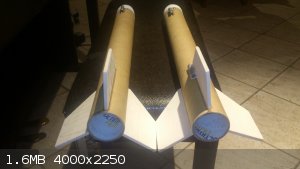 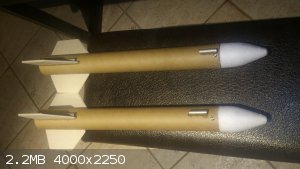 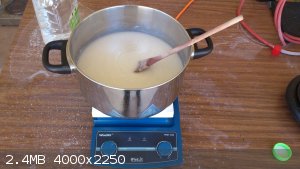
[Edited on 23-3-2016 by NedsHead]
|
|
|
Science is my middle name
Harmless

Posts: 10
Registered: 6-1-2016
Member Is Offline
Mood: No Mood
|
|
I have built loads of small sugar rockets about 18" tall to 36" tall I have even tested KNO3 + another fuel to make new fuels and learn about the
properties of certain fuels. Also I frequently watch grant thompsons king of random vids.
|
|
|
Microtek
National Hazard
   
Posts: 828
Registered: 23-9-2002
Member Is Offline
Mood: No Mood
|
|
Beside the risks and technical difficulties, have you thought about the expense? If you are in school, I'm guessing you don't have a large income, and
a litteral ton of chemicals can be expensive (even if they are not particularly exotic).
Having said that, and assuming you are not simply trolling, go with a composite propellant similar to the ones used in other space programs. You'll
want something that's tried and tested and you'll want to read huge amounts of technical litterature to establish exactly how to prepare and load the
propellant grain. Knowing the chemical makeup of the propellant is just scraping the surface of what you need. If, say, your processing of the
propellant before curing isn't good enough, you could easily end up with large bubbles in the grain which could lead to CATO.
There's also the questions of grain geometry, body- and nozzle materials (you need a protracted burn which is very demanding of the materials) and
aerodynamics. You have a LOT of reading ahead of you.
|
|
|
Herr Haber
International Hazard
    
Posts: 1236
Registered: 29-1-2016
Member Is Offline
Mood: No Mood
|
|
Quote: Originally posted by NedsHead  | I'll share the footage when I catch up with my friend who filmed it (soon I hope) I didn't spend much time making the motor cases but they turned out
fine.
[Edited on 23-3-2016 by NedsHead] |
Yes, I'd like to see that !
|
|
|
NedsHead
Hazard to Others
  
Posts: 409
Registered: 9-12-2014
Location: South Australia
Member Is Offline
Mood: No Mood
|
|
"Core diameter? meh.. I'll just eyeball it" https://www.youtube.com/watch?v=jwvW-u9_igI
|
|
|
Oscilllator
National Hazard
   
Posts: 659
Registered: 8-10-2012
Location: The aqueous layer
Member Is Offline
Mood: No Mood
|
|
NedsHead I've had this exact same problem and I rather suspect it had less to do with core diameter and more to do with numerous cracks in the fuel,
massively increasing the surface area. I suspect there is a very good reason why NASA uses pourable, rubberised propellant.
How did you drill your cores though? I have personally found that to be the limiting factor when it came to reasonably sized rockets. It's extremely
difficult to drill a core after it has been packed, and equally difficult to get a good packing with a rod of the correct diameter sitting inside the
rocket ready to be pulled out once it is packed.
|
|
|
NedsHead
Hazard to Others
  
Posts: 409
Registered: 9-12-2014
Location: South Australia
Member Is Offline
Mood: No Mood
|
|
you could be right about the cracks Oscilllator, I did the coring while the fuel was still hot and pliable just after pouring, I don't think the
coring itself was the problem, most likely the hours of rough travel to the launch location that might have cracked the fuel.
I made a jig from scrap steel to do the core and it worked quite well, I clamped the coring rod in my lathe and turned it slowly while I fed the
rocket in from the other end by hand and gave it an occasional spray of silicon.
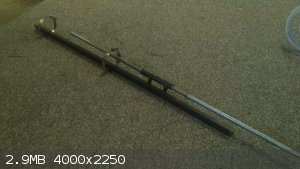
[Edited on 28-3-2016 by NedsHead]
|
|
|
| Pages:
1
2 |